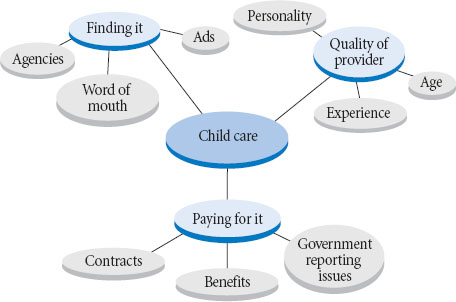Decide Where to Begin
Printed Page 47
Selecting a topic, whether for a classroom speech or another venue, can be approached from a variety of angles. You can start by making an inventory of your own expertise and life experiences, from favorite hobbies to causes you care about. Perhaps you volunteer as a mentor or serve on a student group. Alternatively, you can begin by focusing on social issues of national or global consequence, such as foreign policy or the health of the oceans. Wherever you choose to begin, pick a general topic you are drawn to and want to know more about. Ask yourself: Does the topic benefit my listeners and align with their expectations? Does it suit the speech occasion?
| PERSONAL INTERESTS | CURRENT EVENTS AND CONTROVERSIAL ISSUES |
|---|---|
|
|
| VALUES AND GOALS | SPECIFIC SUBJECT INTERESTS |
|
|
| GRASSROOTS ISSUES | NEW AND UNUSUAL ANGLES |
|
|
Steer Clear of Overused and Trivial Topics
To avoid boring your classmates and instructor, stay away from tired issues, such as drunk driving and gun control, as well as trite topics such as “how to change a tire.” Instead, consider a subject that is underserved by other speakers that yields fresh insight. As one source of ideas, consult your favorite print or online publications. Beware, however, of choosing highly charged topics for which people have deeply held beliefs, such as abortion or prayer in school. People rarely respond to persuasion directed at their core values, so speeches on such topics are likely to accomplish little except to raise tension in the classroom.
Quick Tip
Explore Topics on CQ Researcher
Librarians often refer students to two related publications—CQ Researcher (published weekly) and CQ Global Researcher (published monthly)—for trustworthy background information on pressing social, political, environmental, and regional issues. Available online as part of your library’s electronic holdings, they include, for each topic, an overview and assessment of the current situation; pro/con statements from representatives of opposing positions; and bibliographies of key sources.
Try Brainstorming to Generate Ideas
To generate ideas for topics, try brainstorming by word association and topic (mind) mapping.
To brainstorm by word association, write down a single topic that might interest you and your listeners. Next, write down the first thing that comes to mind. Continue this process until you have a list of fifteen to twenty items. Narrow the list to two or three, and then select the best topic:
health → alternative medicine → naturopathy → homeopathy
To brainstorm by topic (mind) mapping, put a potential topic in the middle of a piece of paper. As related ideas come to you, write them down, as shown in Figure 7.1. Mind mapping allows you to visualize relationships among ideas and spurs creative thinking.
